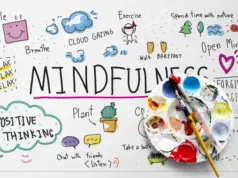The profound impact of music on human emotions is a universal experience that transcends cultures and spans generations. In exploring the intricate relationship between music and mental wellness, we uncover a realm where melodies have the power to uplift, soothe, and even heal. Let’s understand the therapeutic influence of sound on our mental well-being.
- The Neurological Symphony:
The connection between music and the brain is a fascinating symphony of neurological responses. According to a study published in the Journal of Music Therapy, listening to music triggers the release of dopamine, a neurotransmitter associated with pleasure and reward. This natural “feel-good” chemical is instrumental in enhancing mood and reducing stress. Moreover, music has the ability to stimulate various regions of the brain, including those responsible for emotions, memory, and motor control.
Harvard Health Blog emphasizes that music can act as a powerful tool in regulating emotions. The intricate interplay between rhythm, melody, and harmony engages the brain’s emotional center, offering a therapeutic avenue for managing and expressing feelings. Whether it’s the upbeat tempo of a favorite song lifting spirits or the gentle notes of a calming melody easing stress, the neurological response to music is a testament to its emotive potency.
- Musical Resonance and Stress Reduction:
The calming effect of music extends to stress reduction, a critical component of mental wellness. The American Psychological Association (APA) highlights the role of music in modulating the body’s stress response. Listening to slow-tempo music with a steady rhythm can induce a relaxation response, lowering heart rate and cortisol levels. This is particularly beneficial for individuals navigating high-stress situations, providing a readily accessible and cost-effective stress management tool.
Incorporating music into daily routines can create a positive feedback loop for stress reduction. The University of Nevada, Reno, conducted a study revealing that actively engaging in making music, such as playing an instrument or singing, enhances the stress-relieving benefits. This participatory aspect of music allows individuals to channel their emotions and immerse themselves in a creative process, fostering a sense of accomplishment and tranquility.
- Personalized Playlists for Mental Well-being:
The therapeutic potential of music becomes even more pronounced when tailored to individual preferences. According to Psychology Today, creating personalized playlists allows individuals to curate a musical landscape that resonates with their emotions and experiences. This customization enables a profound connection to memories, emotions, and personal narratives. Whether it’s reliving cherished moments through nostalgic tunes or finding solace in lyrics that mirror one’s feelings, personalized playlists become a therapeutic soundtrack for mental well-being.
Research from Frontiers in Psychology suggests that the emotional impact of music is subjective and influenced by individual preferences and associations. As such, the process of selecting and listening to music becomes an empowering tool for self-expression and emotional regulation. This individualized approach to music consumption aligns with the principles of person-centered care in mental health, acknowledging the unique needs and preferences of each individual.
Incorporating Music into Mental Wellness Practices:
Integrating music into mental wellness practices is a versatile and accessible strategy. Whether it’s creating personalized playlists, actively engaging in music-making, or simply savoring the melodies of favorite tunes, the therapeutic influence of music is a readily available resource. The World Health Organization recognizes the importance of incorporating arts and culture, including music, into mental health promotion and treatment strategies.
In conclusion, the harmonious connection between music and mental wellness is a testament to the profound influence of sound on our emotional and neurological landscapes. Whether it’s the therapeutic resonance of a calming melody, the stress-reducing benefits of personalized playlists, or the neurological symphony that music creates in our brains, the power of music to enhance mental well-being is both profound and accessible. As we navigate the complexities of life, let the melodies that resonate with our souls become allies in our journey towards mental wellness.













































